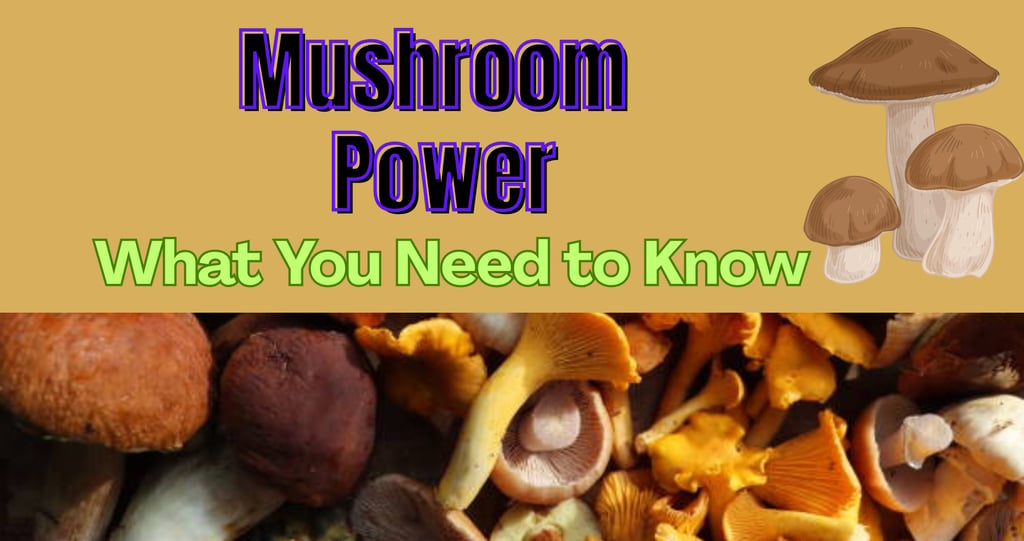Join Our Community & Get Your Free Health Starter Kit
What You Need to Know About Mushrooms
Discover the surprising health benefits, fun facts, and tasty tips about mushrooms! Learn why these fungi are a must-have in your kitchen and wellness routine.


What You Need to Know About Mushrooms
Mushrooms may be small, but they pack a powerful punch when it comes to nutrition, flavor, and even medicine. Whether you're tossing them into your pasta, sipping them in a tea, or learning about their healing properties, mushrooms are more than just a pizza topping. Here's what you need to know about these fascinating fungi.
1. Mushrooms Are Fungi, Not Plants
While mushrooms grow from the ground like plants, they're actually a type of fungi. Unlike plants, mushrooms don’t rely on sunlight to grow. Instead, they absorb nutrients from organic matter, helping decompose dead trees, leaves, and other plant materials. In fact, mushrooms are nature’s recyclers!
🍽️ 2. They're Packed with Nutrients
Mushrooms are low in calories and fat, but high in important nutrients such as:
B vitamins (riboflavin, niacin, and pantothenic acid)
Selenium, an antioxidant that supports the immune system
Copper, important for heart and nerve health
Potassium, which helps regulate blood pressure
Some mushrooms even produce vitamin D when exposed to sunlight!
3. There Are Thousands of Varieties
From the common white button mushroom to exotic varieties like shiitake, oyster, lion’s mane, and reishi, each type has its own flavor, texture, and benefits. While many are edible and delicious, some mushrooms are poisonous—so it’s important never to pick wild mushrooms unless you're trained to identify them.
4. Some Mushrooms Are Medicinal
For centuries, cultures around the world have used mushrooms for healing. Medicinal mushrooms like reishi, chaga, cordyceps, and turkey tail are believed to support the immune system, fight inflammation, and boost energy. These are often taken in teas, capsules, or powders.
5. Mushrooms May Support Brain Health
New research shows that certain mushrooms—especially lion’s mane—may help improve focus, memory, and even mood. Some scientists are studying their potential to protect against neurodegenerative diseases like Alzheimer’s. Exciting stuff!
6. Safety First!
If you're foraging or trying a new mushroom supplement, always prioritize safety:
Don’t eat wild mushrooms unless properly identified by an expert.
Talk to a healthcare provider before starting any mushroom-based supplement.
Buy mushrooms from reputable sources.
7. How to Enjoy Mushrooms in Your Diet
Mushrooms are incredibly versatile! Try these ideas:
Sauté them with garlic and olive oil for a tasty side.
Add them to soups, stews, and pasta.
Grill portobellos as a meat alternative.
Toss raw cremini or white mushrooms into salads.
Their umami (savory) flavor makes them a perfect addition to plant-based meals.
